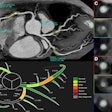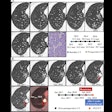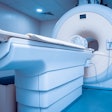Dear AuntMinnie Member,
What's the best way to determine who should be eligible for CT lung cancer screening? The current gold standard is criteria set by the U.S. Preventive Services Task Force (USPSTF), but a new study indicates that using a risk-based approach could be more effective.
Researchers from the U.S. National Cancer Institute (NCI) compared the effectiveness of screening based on the USPSTF criteria -- which focus mostly on smoking history -- with another approach that includes not only smoking history but also other demographic and clinical factors. The NCI model generates a percentage score that estimates the likelihood that an individual will develop lung cancer within five years.
The researchers found that the NCI model would have prevented more lung cancer deaths during the study period, and it would also have countered a decline in the effectiveness of screening using the USPSTF approach. Read more by clicking here for an article in our CT Community.
How safe are ICDs during MRI?
How safe is it to perform MRI scans on patients with implantable cardioverter-defibrillators (ICDs)? A new study published in the New England Journal of Medicine indicates that it's pretty safe.
When researchers analyzed more than 1,000 MRI scans on patients with ICDs and pacemakers, they found that, on the whole, there were very few clinically significant adverse events. Learn more about the findings by clicking here.
In other MRI news, a new animal study by researchers from Oregon Health and Science University may shed light on the mechanism by which gadolinium is retained in those who receive a gadolinium-based contrast agent (GBCA). The group administered gadolinium contrast to pregnant macaque monkeys and then measured levels in both the mothers and their offspring after the exams. Find out what they discovered by clicking here, or go to our MRI Community at mri.auntminnie.com.
DBT use in Medicare system
Finally, visit our Women's Imaging Community for a new article on research that tracked the adoption of digital breast tomosynthesis (DBT) for breast cancer screening in the Medicare system. A group from Thomas Jefferson University found that just under 20% of breast screening exams were performed with DBT in 2015. While that might seem low, the researchers found the number to be encouraging. Find out why by clicking here, or visit our Women's Imaging Community at women.auntminnie.com.




















